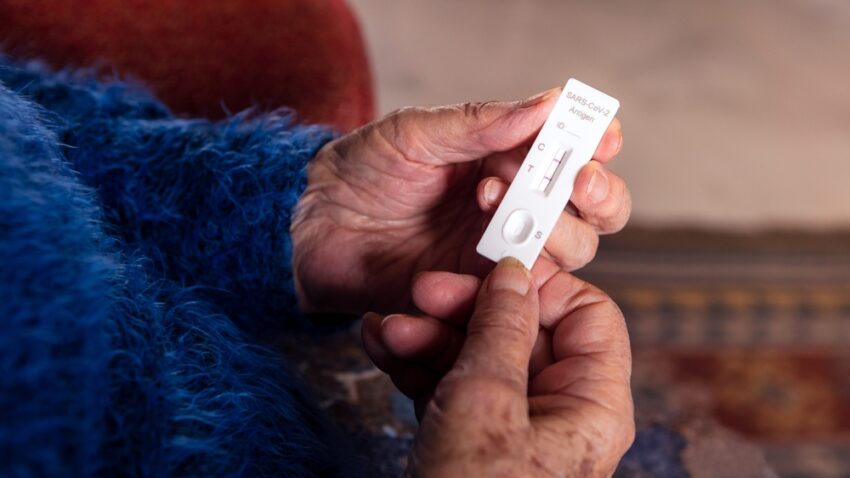[ad_1]
When you feel unwell and think it might be COVID-19, reaching for a home test kit is a common first step. But what if that kit has passed its expiration date?
Using an expired Covid-19 test kit can impact its accuracy, potentially leading to false results. This is important to consider, as the reliability of your test result can affect your next steps in seeking medical care or self-isolating.
The expiration date on a test kit indicates the end of its expected shelf life when it performs as intended. It’s important to verify this date, mainly because the shelf life can be extended in some cases if new data supports this. Always make sure that the test you use is within its valid period to maximise accuracy.
You can find reliable Covid testing kits here; many options are available to suit your needs. Accurate results are important for effectively managing health decisions, so knowing how expiration dates can influence test accuracy is important.
Influence of Expiry Dates on Covid Test Kit Efficacy
The expiry date of a Covid test kit can affect its performance and reliability. This section will explore how the shelf life impacts test results, the stability of the kit’s chemical components, and the role of guidelines from manufacturers and regulatory bodies.
Shelf Life and Test Sensitivity
Covid test kits are designed with a specific shelf life, which affects how well they detect the virus. Over time, the test’s sensitivity can degrade, meaning it might not detect the virus as well as a newer test. This leads to an increased chance of false negatives. It’s important to check the expiry date on the box before using a test kit. Once a test kit is expired, it may not provide accurate outcomes.
Chemical Stability of Reactive Components
The chemical agents in Covid test kits are carefully formulated to react with specific viral components. As these agents age, their reactivity may be reduced. This degradation affects the test’s ability to identify the virus accurately. Therefore, the shelf life established by the manufacturer considers the expected stability of these chemicals. Proper storage conditions, such as temperature and humidity, also play a role in maintaining the efficacy of the test components.
Manufacturer Guidelines and Regulatory Compliance
Manufacturers provide guidelines on how long their test kits remain effective, usually printed as an expiration date on the package. These guidelines are based on regulatory standards and testing to guarantee accuracy. Extensions of expiry dates may occur if further testing supports stability beyond the original date. It is important to follow these guidelines to avoid errors, such as using an expired test, highlighted in common pitfalls when using at-home Covid tests. This compliance helps to maintain the credibility of results and health safety.
Mitigating Inaccuracies in Expired Covid Test Kits
Expired Covid test kits may lead to less reliable results. To minimise this risk, it is important to consider how storage conditions affect test accuracy and understand the potential for false results and the associated health implications.
Storage Conditions and Their Impact
Proper storage conditions are key to maintaining the accuracy of Covid test kits. Exposure to high temperatures or moisture can damage the chemicals in the test, making it less reliable. It’s important to keep tests in a cool, dry place to prolong their usefulness, even past their expiration date.
Following manufacturer guidelines is also important for maintaining test kit integrity. Always check the package for specific storage instructions to prevent any degradation that can affect test results. Storing tests improperly may lead to additional inaccuracies, especially if the kits are already expired.
Potential for False Results and Health Implications
Using expired Covid test kits increases the risk of false negatives or positives. This inaccuracy complicates personal health decisions and public health measures. False negatives are particularly concerning, as they could result in unknowingly spreading the virus.
False positives also have implications, leading to unnecessary isolation and anxiety. Comparing home tests to PCR tests can be helpful. PCR tests are generally more accurate in detecting the virus, especially when you suspect a false result from an expired test. Understanding these issues can guide you to make better choices about testing during important situations.
Conclusion
Understanding expiration dates on Covid test kits is important for maintaining accurate results. Over time, the effectiveness of these tests can diminish, impacting their ability to deliver reliable results.
You may still consider using expired Covid tests, but it’s important to verify if their expiration dates have been extended. Always check the FDA website to confirm updated expiration information.
Accuracy is important when testing for Covid. Relying on tests within their valid date range helps guarantee the most reliable outcomes. If a test has expired, its sensitivity might not be as high, potentially leading to incorrect results.
In any health-related situation, staying informed and making decisions based on current guidelines and reliable information is wise. Regular updates from health authorities can help you stay on track.
[ad_2]
Source link

